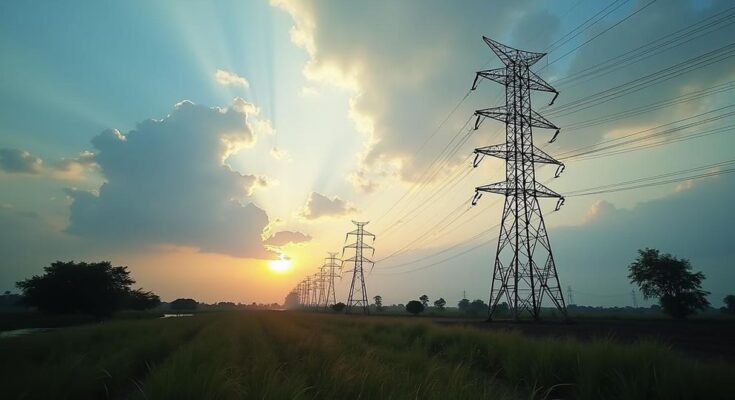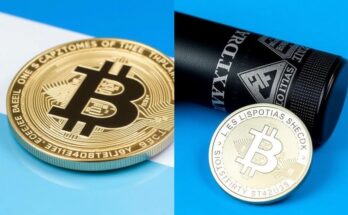Benin Republic and Togo owe Nigeria $5.79 million for electricity consumed in Q2 2024. The Nigerian Electricity Regulatory Commission reported that out of a total invoiced amount of $15.60 million, international customers remitted only $9.81 million, resulting in outstanding debts. Improvements in payment efficiencies and shifts in government subsidy obligations are noted amidst these financial dynamics.
The Nigerian Electricity Regulatory Commission (NERC) has disclosed that bilateral electricity customers in Benin Republic and Togo owe Nigeria a total of $5.79 million for energy consumed during the second quarter of 2024. This revelation was made public through NERC’s latest report, which examines the billing and payment activities of international customers in the Nigerian Electricity Supply Industry (NESI). According to the report, the market operator issued invoices amounting to $15.60 million between April and June 2024; however, the international customers managed to remit only $9.81 million, resulting in a substantial outstanding balance. The companies involved include Para-SBEE in Benin Republic, which owes $1.23 million; Transcorp-SBEE in Benin; Mainstream-NIGELEC in Togo ($1.09 million); and Odukpani-CEET in Togo ($3.47 million). In terms of payment percentages, Para-SBEE remitted a commendable 71.21% of its $4.29 million bill, while Transcorp-SBEE fulfilled its obligation completely by remitting 100% of the $4.25 million owed. On the other hand, Mainstream-NIGELEC paid 69.72% of its bill amounting to $3.59 million, but Odukpani-CEET did not make any payment during the specified period. NERC’s previous report covering the first quarter indicated that none of the international customers made payments against the cumulative invoice of $14.19 million issued by the market operator during that time. The recent findings in the second quarter report showed that some customers, both domestic and international, began settling their outstanding invoices from prior quarters. Overall, international customers collectively paid a total of $16.65 million as a result of back payments and ongoing transactions, with Transcorp-SBEE and Mainstream-NIGELEC clearing all previous invoices. The report further stressed that the four international customers supplied by the generation companies in NESI paid $9.81 million against a cumulative invoice of $15.60 million, reflecting a remittance performance of 62.88%. This performance was significantly better compared to domestic bilateral customers, who made payments amounting to N1.30 billion against a cumulative invoice of N1.99 billion, resulting in a collection efficiency of 65.07%. Additionally, the report highlighted a substantial decrease in the Federal Government’s electricity subsidy obligation. From N633.30 billion, which accounted for 90.57% of the total invoiced amounts within the first quarter, the obligation dropped to N380.06 billion, signifying a decrease of N253.24 billion. This reduction is attributed to government policy changes concerning tariff reviews for different customer bands. In terms of broader financial performance, the total revenue collected by all Distribution Companies (Discos) during Q2 of 2024 was N431.16 billion, up from N291.62 billion in the previous quarter. This change indicates a slight increase in collection efficiency from 79.11% to 79.31%. Specifically, Ikeja and Eko Discos achieved the highest collection efficiencies of 94.67% and 88.03%, whereas Yola Disco reported the lowest efficiency at 55.67%.
This article addresses the financial dynamics between Nigeria and its bilateral electricity customers in neighboring countries, specifically focusing on the debts incurred by Benin Republic and Togo for electricity supplied during the second quarter of 2024. It emphasizes the trends in invoicing and remittances and highlights overall performance metrics for the Nigerian Electricity Supply Industry (NESI). The impact of government policies on tariffs and subsidy obligations also forms a critical aspect of the discussion, providing insight into the operational challenges and improvements in collection efficiencies among distribution companies (Discos).
In summary, the Nigerian Electricity Regulatory Commission reports that international customers from Benin Republic and Togo collectively owe Nigeria $5.79 million for electricity consumed in Q2 2024. Although some payments were made, a significant balance remains outstanding. The government’s adjustments in tariff policies have influenced subsidy obligations and overall revenue collection, leading to a minor but noticeable increase in collection efficiencies among Discos. This situation underlines the ongoing financial relationship between Nigeria and its regional electricity customers, alongside the continuing efforts to improve service and revenue management in the power sector.
Original Source: punchng.com




